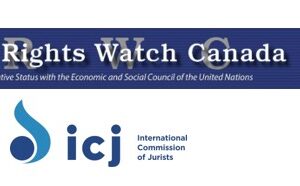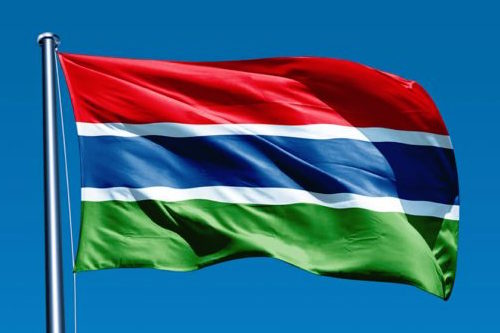
Nov 25, 2018 | News
The International Commission of Jurists (ICJ) welcomes the formal declaration of the Gambia to allow individuals and certain non-governmental organizations with observer status access to complain of human rights violations against the Gambian State at the African Court on Human and Peoples Rights.
Gambia became the ninth African State to make the declaration to allow individual access the African Court on Human and Peoples Rights. The ICJ called on other States to follow suit rapidly.
“The Gambian government should be applauded, but more African States need to step up to reinforce their international human rights obligations by allowing victims of violations direct access to the Court and to empower the African Human Rights Court to do the work for which it was set up.” said Arnold Tsunga, Director of the ICJ African Regional Progamme. “It is only through extensive depositing of article 34(6) by the majority of African states that the court can be truly an African Court”.
In addition to granting access to individuals, the Declaration made under article 34(6) of the Protocol to the African Charter on Human and Peoples’ Rights triggers the courts jurisdictional competency under article 5(3) to allow for a limited number of NGOS access.
“The promise of human rights protection under the African human rights system can only be realized when political leaders match rhetoric with such action as allowing individuals to seek an effective remedy by direct access to regional human rights mechanisms like the African Court,” added Arnold Tsunga.
The ICJ emphasized that despite the significant human and material resources invested in the Court since its establishment in 2006, the African Court has been unavailable to great majority of Africans, since very few States had so far entered the declaration recognizing its competency.
Other States that have previously made declarations include Benin, Burkina Faso, Côte d´Ivoire, Ghana, Malawi, Mali, Tanzania and Tunisia.
Although, complaints of human rights violation can only be brought directly before the Court against the nine States that have made the declaration, victims of human rights violation of almost all African States can already bring claims against other states through the non-judicial communication procedure available at the African Commission on Human and Peoples´ Rights.
The ICJ stressed while access to the Commission’s procedures is important, it was not an adequate substitute for the kind of binding legal remedy that can be only ordered by a Court. The ICJ noted poor rate of compliance with decisions of the African Commission.
Contacts:
Arnold Tsunga, Director of the Africa Regional Programme, International Commission of Jurists C: +263 77 728 3248, E: arnold.tsunga(a)icj.org
Solomon Ebobrah, Senior Legal Advisor, Africa Regional Programme, International Commission of Jurists.C: +234 803492 7549, E: solomon.ebobrah(a)icj.org
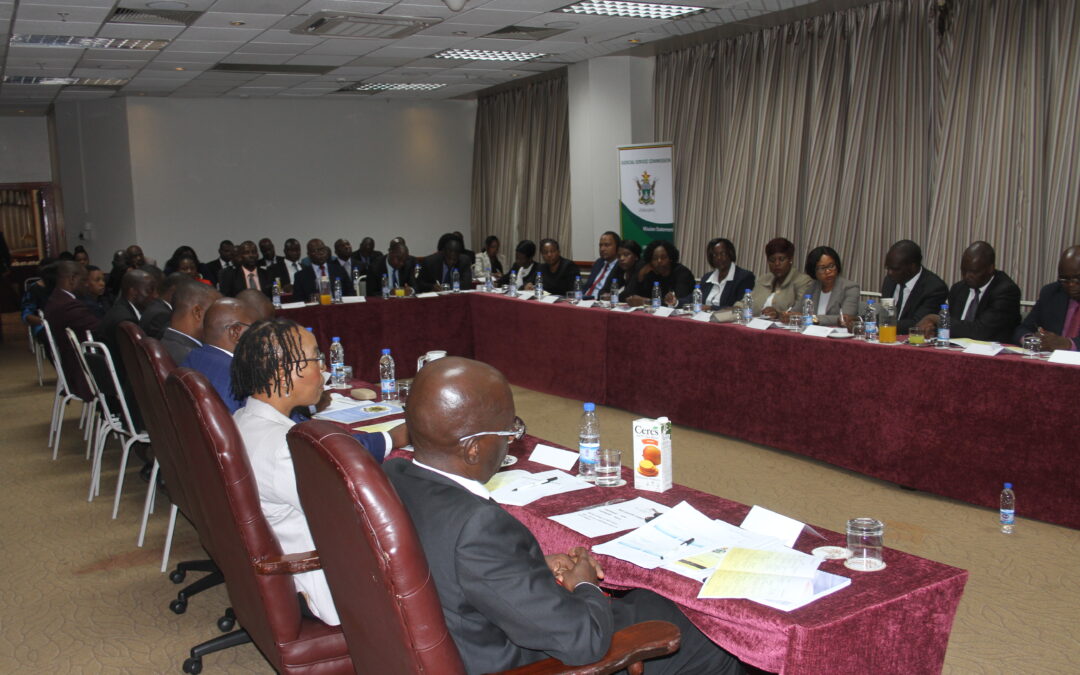
Nov 17, 2018 | News
The Judicial Service Commission (JSC) of Zimbabwe with the support of the ICJ convened a two-day workshop from 16 to 17 November 2018 in Harare to train magistrates designated to the anti-corruption court. 56 Magistrates (39 males 17 females) attended the Workshop.
Speaking during the workshop the Honourable Chief Justice, Luke Malaba encouraged the magistrates to work diligently to “flash out” corrupt elements from society.
He lamented that the current court practice seems to merely launder accused persons through constant remands which eventually lead to failed cases resulting in impunity for corruption in the country.
He pointed out that corruption is a threat to the rule of law urging the judiciary to be conscientious in dealing with corruption cases.
The workshop is part of a broader justice sector intervention by the JSC with the support of the ICJ, through generous funding provided by the European Union (EU) targeting combating corruption in the legal system.
The two-day training meeting looked at equipping 56 magistrates with the skills and knowledge to adjudicate cases of white-collar crime.
The training covered international best practices in the setting up of such courts, substantive law on corruption and practical court administration issues.
Besides the quality of the investigations, the effectiveness of the anti-corruption courts will also depend on the integrity and competency of the officers appointed to preside over them.
This workshop is one of a number of initiatives that the JSC are effecting with the support of the ICJ and the EU to contribute to a reduction in the levels of corruption and strengthen the ability of the justice system to resolve corruption and resource diversion cases in Zimbabwe.
Contact
Brian Penduka on brian.penduka(a)icj.org or +263772274307
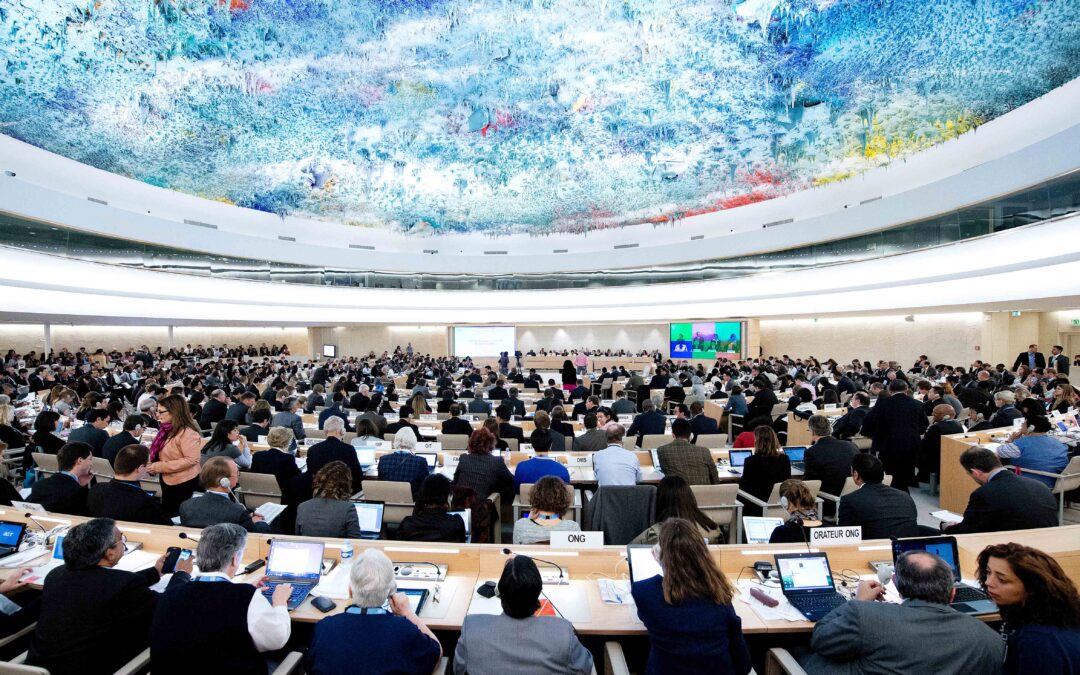
Sep 28, 2018 | Plaidoyer
La CIJ s’est jointe à d’autres organisations de la société civile pour interpeller le Conseil des droits de l’homme des Nations Unies sur les succès et les échecs de sa 39e session qui s’est achevée aujourd’hui.
La déclaration, lue par l’International Service for Human Rights (ISHR), était la suivante:
«Lors de cette session, le Conseil a adopté des résolutions historiques sur plusieurs pays, renforçant ainsi sa contribution à la protection des droits de l’Homme.
En ce qui concerne le Myanmar, nous nous félicitons de la création d’un mécanisme d’enquête indépendant, qui constitue une étape importante dans la responsabilité à l’égard des crimes horribles commis au Myanmar, comme détaillé dans le rapport de la Mission d’enquête (FFM) présenté lors de cette session. L’appui massif à la résolution, malgré le blocage honteux du consensus par la Chine, était un message clair aux victimes et aux survivants que la communauté internationale les soutient dans leur combat pour la justice.
En ce qui concerne le Yémen, le Conseil a démontré qu’une action fondée sur des principes est possible, et a envoyé un message fort aux victimes de violations des droits de l’Homme au Yémen affirmant que l’obligation de rendre des comptes est une priorité pour la communauté internationale, en votant en faveur du renouvellement du mandat du Groupe d’éminents experts pour poursuivre les enquêtes internationales sur les violations commises par toutes les parties prenantes au conflit.
En outre, nous nous félicitons du rôle moteur joué par un groupe d’États dans le cadre de la résolution historique sur le Venezuela, que nous considérons comme une étape importante pour le Conseil qui applique des critères objectifs pour faire face aux situations de pays qui méritent son attention. La résolution, adoptée avec le soutien de toutes les régions des Nations unies, envoie un message fort de soutien au peuple vénézuélien. En ouvrant un espace de dialogue au Conseil, la résolution examine de près la crise tragique des droits de l’Homme et de la crise humanitaire dans le pays.
Bien que nous nous félicitons du renouvellement du mandat de la Commission d’enquête sur le Burundi, qui vise à poursuivre son enquête critique et à œuvrer en faveur de la responsabilité, nous regrettons toutefois que le Conseil n’ait pas réagi plus fermement au passif du Burundi en matière de non-coopération et d’attaques contre le système des droits de l’Homme de l’ONU.
Nous nous félicitons également de l’adoption par le Conseil de la résolution sur la Syrie, qui condamne notamment toutes les violations et abus du droit international des droits de l’Homme et toutes les violations du droit international humanitaire commises par toutes les parties au conflit.
Toutefois, dans les situations d’autres pays, notamment en Chine, au Soudan, au Cambodge et aux Philippines, le Conseil n’a pas pris de mesures appropriées.
En ce qui concerne le Soudan, nous sommes profondément préoccupés par la faible résolution qui envisage de mettre fin au mandat de l’expert indépendant une fois qu’un office du HCDH sera créé. Le Soudan a déjà indiqué qu’il ne se sentait pas lié par un tel «accord», ce qui constitue une abdication de la responsabilité du Conseil envers les victimes des droits de l’Homme au Soudan alors que de graves violations sont en cours. Au minimum, les États devraient veiller à ce que l’office prévu surveille et rende compte publiquement de la situation des droits de l’Homme au Soudan et que la Haut-Commissaire soit chargée de faire rapport au Conseil sur les conclusions du Bureau.
Nous regrettons également l’absence d’action concertée du Conseil sur les Philippines, malgré la nécessité de mettre en place des enquêtes nationales et internationales indépendantes sur les exécutions extrajudiciaires commises dans le cadre de la «guerre contre la drogue» du gouvernement, ainsi que de surveiller et de réagir à la tendance du gouvernement à l’autoritarisme.
En outre, nous regrettons la faible réponse du Conseil à la crise profonde des droits de l’Homme et de l’état de droit au Cambodge, n’ayant pas modifié son approche même face aux constatations claires du Rapporteur spécial démontrant que l’accent était mis exclusivement sur l’assistance technique et le renforcement des capacités dans ce pays est en train d’échouer.
Nous partageons les préoccupations que plusieurs ont exprimées au cours de la session, y compris la Haut-Commissaire, concernant la situation propre de la Chine en matière de droits de l’Homme, soulignant en particulier les graves violations des droits des Ouïghours et d’autres minorités à prédominance musulmane dans la province du Xinjiang. Il est regrettable que les États n’aient pas lancé un appel collectif concret pour que la Chine mettre fin à l’internement de personnes appartenant à ces communautés, estimées jusqu’à 1 million.
En ce qui concerne les résolutions thématiques, nous nous félicitons de l’adoption de la résolution sur la participation égale des femmes aux affaires politiques et publiques, mais nous aurions préféré une plus grande approbation et mise en œuvre des Directives.
La résolution sur la sécurité des journalistes, adoptée par consensus, établit une feuille de route claire d’actions concrètes visant à mettre un terme à l’impunité des agresseurs. Le journalisme n’est pas un crime. Pourtant, trop d’États dans cette salle ne font qu’emprisonner ceux qui les critiquent. Cela doit prendre fin en commençant par la mise en œuvre de cette résolution.
Nous nous félicitons de l’adoption par consensus de la résolution sur la la mortalité et morbidité maternelle évitable et les droits de l’Homme dans les contextes humanitaires. Les femmes et les filles touchées par un conflit se sont vu refuser des comptes pendant trop longtemps. La mise en œuvre de cette résolution fera en sorte que leurs droits, y compris leurs droits en matière de santé sexuelle et reproductive, soient respectés, protégés et réalisés.
Enfin, le premier dialogue interactif du Conseil sur les représailles était une étape importante pour garantir une responsabilité sur cette pratique honteuse, et nous exhortons davantage d’États à avoir le courage et la conviction de s’engager pour les défenseurs et d’interpeller les pays qui les attaquent et les intimident”.
Signataires:
1. The African Centre for Democracy and Human Rights Studies (ACDHRS)
2. Amnesty International
3. Article 19
4. Center for Reproductive Rights
5. CIVICUS
6. DefendDefenders
7. FIDH
8. Forum Asia
9. Human Rights House Foundation (HRHF)
10. Human Rights Watch
11. Commission Internationale de Juristes
12. International Service for Human Rights (ISHR)
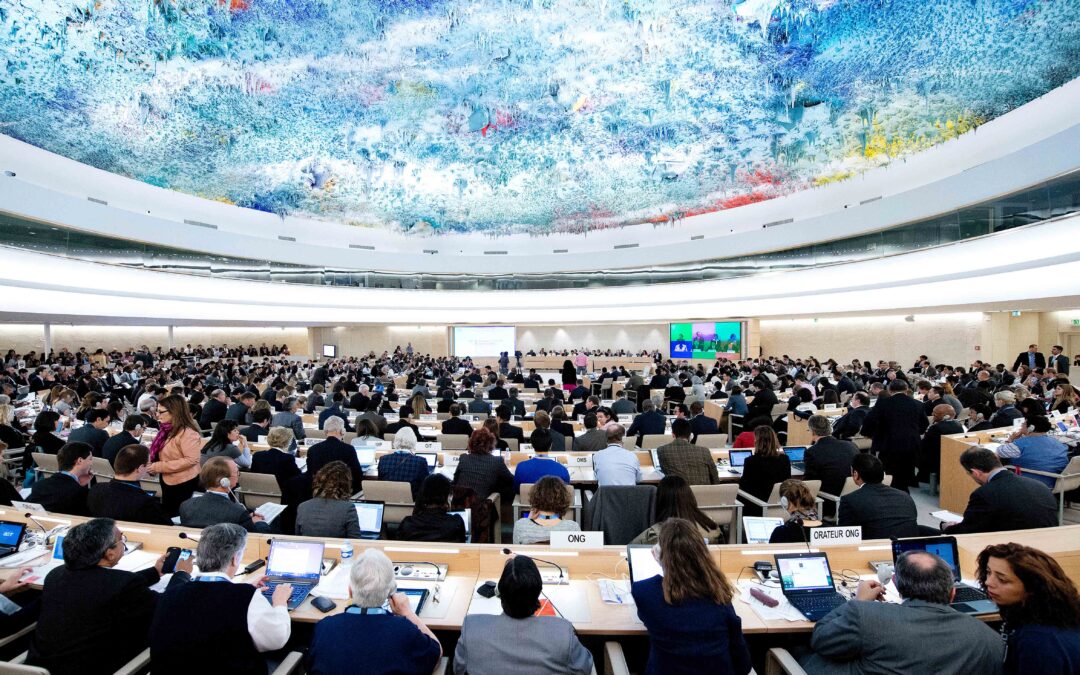
Sep 28, 2018 | Advocacy, Non-legal submissions
The ICJ joined other civil society organisations in addressing the UN Human Rights Council, on the successes and failures of its 39th session, concluding today.
The statement, read by International Service for Human Rights (ISHR), was as follows:
“This session, the Council adopted landmark resolutions on several country situations, further enhancing its contribution to the protection of human rights.
On Myanmar, we welcome the creation of the independent investigative mechanism, which is an important step towards accountability for the horrific crimes committed in Myanmar, as elaborated in the FFM’s report to this session. The overwhelming support for the resolution, notwithstanding China’s shameful blocking of consensus, was a clear message to victims and survivors that the international community stands with them in their fight for justice.
On Yemen, the Council demonstrated that principled action is possible, and has sent a strong message to victims of human rights violations in Yemen that accountability is a priority for the international community, by voting in favour of renewing the mandate of the Group of Eminent Experts to continue international investigations into violations committed by all parties to the conflict.
Furthermore, we welcome the leadership by a group of States on the landmark resolution on Venezuela, and consider it as an important step for the Council applying objective criteria to address country situations that warrant its attention. The resolution, adopted with support from all UN regions, sends a strong message of support to the Venezuelan people. By opening up a space for dialogue at the Council, the resolution brings scrutiny to the tragic human rights and humanitarian crisis unfolding in the country.
While we welcome the renewal of the mandate of the Commission of Inquiry (CoI) on Burundi, to continue its critical investigation and work towards accountability, however we regret that the Council failed to respond more strongly to Burundi’s record of non-cooperation and attacks against the UN human rights system.
We also welcome the Council’s adoption of the resolution on Syria, which among other things condemns all violations and abuses of international human rights law and all violations of international humanitarian law committed by all parties to the conflict.
However, on other country situations including China, Sudan, Cambodia and the Philippines, the Council failed to take appropriate action.
On Sudan, we are deeply concerned about the weak resolution that envisions an end to the Independent Expert’s mandate once an OHCHR office is set up; a “deal” Sudan has already indicated it does not feel bound by, and which is an abdication of the Council’s responsibility to human rights victims in Sudan while grave violations are ongoing. At a minimum, States should ensure the planned country office monitors and publicly reports on the human rights situation across Sudan, and that the High Commissioner is mandated to report to the Council on the Office’s findings.
We also regret the lack of concerted Council action on the Philippines, in spite of the need to establish independent international and national investigations into extrajudicial killings in the government’s ‘war on drugs’, and to monitor and respond to the government’s moves toward authoritarianism.
In addition, we regret the Council’s weak response to the deepening human rights and the rule of law crisis in Cambodia, failing to change its approach even when faced with clear findings by the Special Rapporteur demonstrating that the exclusive focus on technical assistance and capacity building in the country is failing.
We share the concerns that many raised during the session, including the High Commissioner, about China’s own human rights record, specifically noting serious violations of the rights of Uyghurs and other predominantly Muslim minorities in Xinjiang province. It is regrettable that States did not make a concrete and collective call for action by China to cease the internment of estimates ranging up to 1 million individuals from these communities.
On thematic resolutions, we welcome the adoption of the resolution on equal participation in political and public affairs but would have preferred a stronger endorsement and implementation of the Guidelines.
The resolution on safety of journalists, adopted by consensus, sets out a clear roadmap of practical actions to end impunity for attacks. Journalism is not a crime – yet too many States in this room simply imprison those that criticize them. This must end, starting with the implementation of this resolution.
We welcome the adoption by consensus of the resolution on preventable maternal mortality and morbidity and human rights in humanitarian settings. Women and girls affected by conflict have been denied accountability for too long. The implementation of this resolution will ensure that their rights, including their sexual and reproductive health and rights, are respected, protected and fulfilled.
Finally, the Council’s first interactive dialogue on reprisals was an important step to ensure accountability for this shameful practice, and we urge more States to have the courage and conviction to stand up for defenders and call out countries that attack and intimidate them.”
Signatories:
- The African Centre for Democracy and Human Rights Studies (ACDHRS)
- Amnesty International
- Article 19
- Center for Reproductive Rights
- CIVICUS
- DefendDefenders
- FIDH
- Forum Asia
- Human Rights House Foundation (HRHF)
- Human Rights Watch
- International Commission of Jurists
- International Service for Human Rights (ISHR)
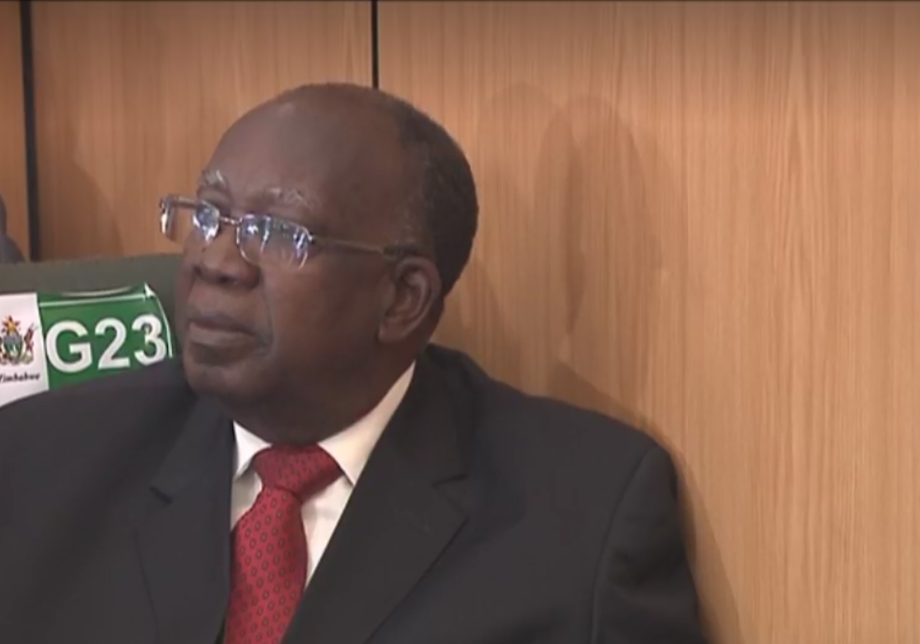
Aug 22, 2018
The ICJ is participating in trial observation mission by leading jurists in hearings on the Zimbabwe Presidential election petition that started at the Constitutional Court in Harare today expected to continue over three days.
Nelson Chamisa of the Movement for Democratic Change Alliance (MDC A), the leading opposition candidate, filed the petition alleging serious irregularities in the way the presidential elections were conducted particularly by the Zimbabwe Electoral Commission (ZEC).
Among other things, he is calling for the elections to be annulled or alternatively for him to be declared the winner.
Both the ZEC and the announced winner incumbent president Emmerson Mnangagwa have filed papers opposing the petition.
The ICJ is conducting a joint trial observation with the Africa Judges’ and Jurists’ Forum in the trial observation mission.
The Mission team is composed of Retired Chief Justice Ernest Sakala (photo) who is a Zambian lawyer and retired Chief Justice of Zambia, Justice Isaac Lenaola a Kenyan lawyer and serving Justice of the Supreme Court of Kenya, since 28 October 2016, Martin Okumu Masiga a Ugandan lawyer and founder member and incumbent Secretary General of the Africa Judges’ and Jurists’ Forum and Simphiwe Sidu a lawyer in the ICJ’s Africa Programme.
The observation mission will include an assessment of the proceedings of the petition in terms of compliance with regional and international human rights law and standards on fair trial and the administration of justice applicable to Zimbabwe.
A statement will be produced at the end of the observation with views that will be made available to the authorities in Zimbabwe and the general public.
Download
A “Question and Answer” briefing paper on the election petition in Zimbabwe is available here for more information:
Zimbabwe-Q and A elections-Advocacy-Analysis brief-2018-ENG (download in PDF)
Contact
Brian Penduka, e: brian.penduka(a)icj.org or t: +263772274307
Arnold Tsunga, e: arnold.tsunga(a)icj.org or t: +27716405926









